This week, Democrats unveiled the Green New Deal -- a new proposal aimed at addressing climate change. Panelists discussed the deal and what it could mean for the Democratic Party.
Special: Explaining the Green New Deal
Feb. 15, 2019 AT 9:27 p.m. EST
TRANSCRIPT
Notice: Transcripts are machine and human generated and lightly edited for accuracy. They may contain errors.
ROBERT COSTA: Hello. I’m Robert Costa. And this is the Washington Week Extra. Several Democrats unveiled a Green New Deal last week modeled on President Roosevelt’s New Deal but aimed at addressing climate change. What is it exactly and what does it mean for the Democratic Party?
Joining me tonight to discuss it, Julie Hirschfeld Davis, congressional correspondent for The New York Times ; Abby Phillip, White House correspondent for CNN; Garrett Haake, Washington correspondent for MSNBC; and John Bresnahan, Capitol bureau chief for POLITICO .
New York Congresswoman Alexandria Ocasio-Cortez and Senator Ed Markey of Massachusetts rolled out the Green New Deal. It is a nonbinding resolution, grand in scope, meant to dramatically cut greenhouse gas emissions in the U.S. over the next decade while also creating jobs and increasing worker rights. Republicans have criticized the deal as socialism and Senate Majority Leader Mitch McConnell said he’ll bring it to the Senate floor.
SENATE MAJORITY LEADER MITCH MCCONNELL (R-KY): (From video.) I have noted with great interest the Green New Deal, and we’re going to be voting on that in the Senate. That will give everybody an opportunity to go on record.
MR. COSTA: It has been embraced by some on the left, in particular those running for president in 2020, but not all Democrats are onboard with the proposal. Where does this Green New Deal head from here? Abby, you see the Republicans are jumping on it; even Mitch McConnell, the majority leader, seemed to smile when talking about it.
ABBY PHILLIP: He’s almost giddy about it. (Laughter.) I think he –
MR. COSTA: Why?
MS. PHILLIP: He thinks of it as a great opportunity to take the heat off of Republicans and put it on whatever ideas that the Democrats have that Republicans think they can convince the public are not good ideas. They have been talking a lot about how much the Green New Deal would cost in terms of jobs, how expensive it might be, some of – you know, you’ll see on social media people highlighting things that will go away if the Green New Deal comes into effect. And some of these are exaggerations, but I think for Republicans this is a great foil for them after two years of actually having a president who’s pretty controversial, and they have something else to talk about. And they’re more than happy to put it on the floor and put some moderate Democrats in a tough spot.
GARRETT HAAKE: The thing about this that’s kind of a shame is the resolution is a statement of values as much as it is a political document, right, and there’s a ton of stuff in here that would be almost politically impossible even if you broke it into component parts, but there are component parts of this that could get bipartisan support. If we ever have another infrastructure week that deals with infrastructure, you know, there’s green infrastructure changes in here. There could be how we build buildings, expanding high-speed rail. I mean, there is stuff in here that could eventually become law. But by packaging it all together in this way to make a political statement, it makes some of the component parts that would otherwise be popular look untouchable broadly as this big political statement.
MR. COSTA: But a lot of 2020 presidential contenders on the Democratic side are embracing it. Why, if it’s so unfeasible in some ways?
JULIE HIRSCHFELD DAVIS: Well, I think because – in part because of what Garrett said. It is a statement of values. It’s a statement of principles. And if you’re a Democrat who wants to be, you know, successful running in 2020, you have to be appealing to the progressive left, and the progressive left really likes this idea that, you know, you would essentially have like a whole overhaul of the way that we look at the economy and look at climate change and look at jobs and all of these issues and even health care, and that it would all sort of be encapsulated in this approach. It also, though, gives Republicans a much easier target in some ways because when you package it all together it’s much easier to sort of caricature it and paint it as some extreme agenda that will never happen whereas, you know, Garrett’s right that there are some elements of this that if there were an infrastructure bill – and I expect Democrats at some point will have an infrastructure proposal – that this would certainly be in it, and it might even be in part of the White House’s proposal. There are certainly proposals that have been around for a long time and that have broad support on both sides of the political aisle.
MR. COSTA: John, help me understand this. There is the Green New Deal – Ocasio-Cortez, Senator Markey – and then you have a climate committee inside of the House. Where –
JOHN BRESNAHAN: Select committee, right.
MR. COSTA: Select Committee on the Climate. So how is Speaker Pelosi handling all this energy on the progressive side but also trying to manage the climate debate in her own way?
MR. BRESNAHAN: Well, I think Pelosi doesn’t want to go and repeat what happened to her the last time, when she did a – when she was speaker in –
MR. COSTA: You’re talking over a decade ago.
MR. BRESNAHAN: Yes, and they did a what was called cap-and-trade bill, and they were capping greenhouse gas emissions and were trading, and it went through the House and got nowhere in the Senate, and Democrats got killed on it. And I think, you know, you saw what happened on the Green New Deal. The rollout got botched, which is unfortunate, but their argument is this –
MR. COSTA: What do you mean it got botched?
MR. BRESNAHAN: Well, they had this frequently asked questions document which was a disaster and, you know –
MR. COSTA: In terms of?
MR. BRESNAHAN: Well, it was talking about, you know – it talked about guaranteed income for all Americans, which has nothing to do with the underlying issue of controlling greenhouse gas emissions, OK? A legitimate issue to talk about, but not in this – but not in this context. And Republicans seized on this – as Abby said, they seized on the parts that they didn’t like and said, look, this is a big government takeover. Now, Pelosi knows – she’s been through this. She knows what Republicans do. And Pelosi’s argument is, look, it’s radical, you know, to do nothing – that’s the radical position – and that – but you have to do – Pelosi is thorough and says you have to build step by step, you have to build coalitions and do that. And, you know, some of these folks – AOC and some of these other folks, they are – they are movement politicians, they’re activists who have been elected to Congress, and they say we got to act now. That’s not how Congress works. I know it’s not pretty, but Congress is slow and it creaks along and it does things, you know, halfway. It never does – you know, never goes as far as the activists want to go, and that’s – Pelosi knows that.
MR. COSTA: Abby, when you’re at the White House do the administration officials you talk to, do they feel any pressure to have an answer on the climate issue, or not?
MS. PHILLIP: Not. (Laughter.) They are not thinking about climate change. And in the fact the president has – it seems, actually, has been talking about climate change a lot more, but usually when he’s trying to tie weather to climate phenomenon. This is a president who still talks about climate change basically being a hoax. On the campaign trail, he talked about it being a Chinese hoax. So he’s nowhere even close to even where a lot of Republicans are. You hear Republicans on the Hill saying: You know, climate change is happening, but we can’t afford the remedies that are being put forward. Trump is saying: Climate change doesn’t exist. And so therefore, the administration acts like it doesn’t exist. They are nowhere near a kind of middle ground on this – on this issue.
MR. HAAKE: But not everybody. The Department of Defense has been out in front on this for, like, a decade, saying that climate change could change theaters of war all around the world if polar ice melts, if rivers dry up, if fuel is harder to come by. The DOD, which has to deal in facts and reality or people get killed, has been paying attention to this. But even they can’t get the White House to care.
MS. PHILLIP: And they’ve been telling Congress as much.
MR. BRESNAHAN: And if you talk to individual senators, they see climate change happening in their state. Marco Rubio knows climate change is happening, and it’s affecting Miami and Florida. Cory Gardner knows it’s happening and it’s affecting Colorado. I mean, they know it’s happening. They know something has to be done. But as you said, you know, they – Republicans have always maintained it’s a cost argument. And Ocasio-Cortez and these other folks want to make this, you know, a moral issue. We have to do something for the future of the – you know, the planet and our race as human beings. And, you know, Republicans – you know, we have a president who, you know, like you said, if it’s cold outside he said, where’s the – you know, where’s the – you know, the planet’s not heating up. It’s 20 degrees out. So I mean, that’s where the head of the party is for Republicans.
MS. DAVIS: Well, and it’s true that they don’t have an answer on climate change, per se. But we did hear the president talk in his State of the Union address about socialism, right? I mean, I think that’s really their answer when you’re talking about this issue right now is that, you know, they’re just going to sort of, in a broad stroke, dismiss this as extreme Democrats, radical Democrats wanting us to be socialist rather than capitalist.
MR. COSTA: What’s their talking point on the cost? Do we know anything about that? With Republicans, how they see the cost of the Green New Deal, or how they’re going to try to frame it as super expensive?
MS. DAVIS: I think they are going to try to frame it as unaffordable. But I think more than that, rather than get into the specifics of affordability, they’re going to make this argument that this is sort of a government takeover that’s we – that is sort of anti-democratic, and it’s not something that we can do. And, you know, there’s going to be less sort of digging into the details of the component parts than there is going to be sort of a broad brush dismissal of this approach.
MR. COSTA: And Democrats don’t seem to mind, though, on this issue, or on Medicare for All.
MS. DAVIS: No, that’s true.
MR. BRESNAHAN: Or taxes. Or taxes.
MR. HAAKE: It’s expensive because it’s worth it. I mean, that’s the argument.
MS. DAVIS: Right, it’s expensive because we need it, yeah.
MR. HAAKE: If you frame it in moral terms, of course it’s expensive because it’s a huge problem, they feel like, and it needs to get solved. So, yeah, they’re not scared of the price.
MS. PHILLIP: I mean, I don’t know that expense is really the issue, if people are being honest. I mean, if you look back at how President Trump ran on actually very expensive proposals, including a trillion-dollar infrastructure proposal and other things, I mean, Republicans are going to use cost for Medicare for All and for the Green New Deal as a cudgel against Democrats. But if you look back not too long ago, the guy who’s running their party ran on a lot of really expensive things. And, by the way, the deficit is still extremely high. Nothing has been done about that in the last two years.
MR. BRESNAHAN: But this goes back to what Julie was saying. I mean, they paired the Green New Deal with Elizabeth Warren’s tax plan, which calls for dramatically higher rates on wealthy people. And they’re saying this is – you know, this – they are using the climate change and the argument as a seizure – as the government seizing power. They turned it into, like, this is the way they – this is the left using government to grab control of your life.
MR. COSTA: I want to – let’s go around for the final minute or so here on that point. Why is the Trump era the moment for the Democrats to move in this direction – whether it’s Medicare for All, the Green New Deal, the Warren tax plan? Why suddenly now? I know we saw it with Senator Sanders in 2016 in his campaign, but what about President Trump has prompted this tilt in the Democratic Party? Julie?
MS. DAVIS: I think it’s a matter of contrast, really. I mean, he has activated such an intensity among his base – and it’s a small sliver of the Republican Party, and it’s a small sliver of the electorate. But it’s a very vocal and energized sliver. And I think Democrats understand that they need to reclaim some of that. They need to activate people in the same way that Trump activates people. And that is going to mean drawing some of these contrasts that are much starker and, frankly, more extreme than they’ve been willing to do in the last several election cycles. And I think that they think – you know, if you ask the broad spectrum of the many Democratic candidates who are out there right now, they all have slightly different takes on this. But I think the consensus is that you have to go really bold because you’re facing a president that is not shrinking from any of this.
MR. HAAKE: And the president has also changed the counter-arguments. Whatever President Trump is, he is not a small-government conservative. He’s got his own big expensive things too. And the argument against you if you’re a Democrat won’t be that it’s going to explode the deficit, or that somehow these things are too expensive. It’s merely an argument about the ideas. The president wants to build a multibillion-dollar wall. He wants to have a Space Force, right? These are not small-government conservative ideas. So if you’re a Democrat, why not go big too?
MS. PHILLIP: Yeah, I mean, I think that is actually it, that President Trump did not run on small ideas. People thought that the travel ban and that the wall were ridiculous ideas when he ran on them. And then he became – he won, and then he became president, and he actually implemented those things. The lesson for Democrats in 2016 was the ideas that everybody’s been telling you for the last decade are too outrageous to put to the American people, put to the American people and see what they actually think about them.
MR. COSTA: And final thing, John, is that Alexandria Ocasio-Cortez – I know she’s only been in the House for a few weeks, but she’s shown real power by being out in front of this proposal and starting a lot of debate inside of her own party.
MR. BRESNAHAN: Oh, yeah. She has definitely moved the needle on this. And, you know, I’ve never covered a freshman like this, or anybody who’s had an impact like this. Look at the Amazon pulling out of – Amazon pulling out of New York. And everybody’s saying, oh, it was Alexandria Ocasio-Cortez. Think about that. She’s – you know, she forced – you know, by doing nothing –
MS. DAVIS: She literally just got there.
MR. BRESNAHAN: Yeah. She just got there. By doing nothing, she forced the biggest company in the world to do something. And now she hopes to take this and do this on climate change. And I think it’s just fascinating. She just fascinates me intensely.
MR. COSTA: That’s it for this edition of the Washington Week Extra. And you will soon be able to watch this live. Starting next Friday we will stream the Extra on our website, Facebook, and YouTube every Friday night, starting at 8:30 p.m. Eastern time.
I’m Robert Costa. Thanks for joining us. And have a good weekend.
MOST POPULAR
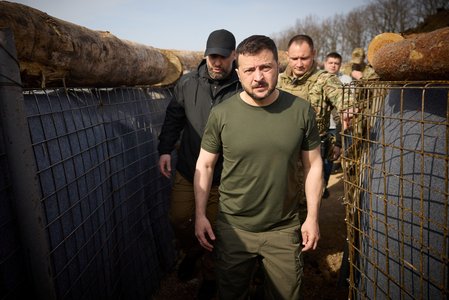
Preview: Coming Up on Washington Week with The Atlantic

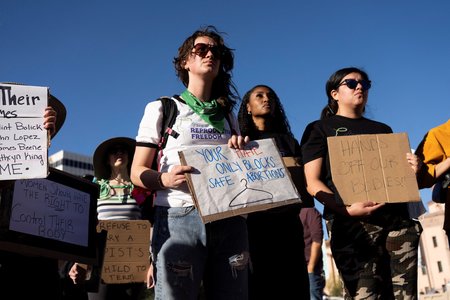
Full Episode: Washington Week with The Atlantic full episode, 4/12/24

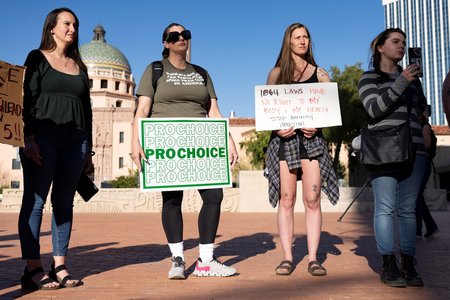
Clip: Democrats seize opportunity to make gains after Arizona abortion decision

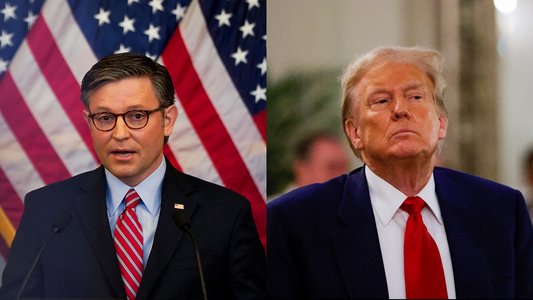
Clip: Johnson visits Mar-a-Lago to shore up support from Trump amid uncertain speakership
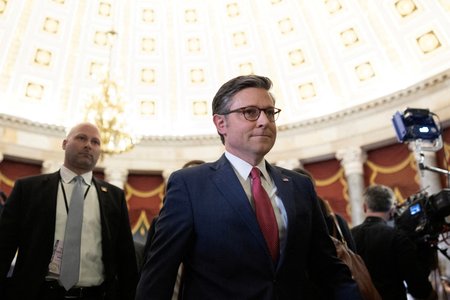
Preview: Coming Up on Washington Week with The Atlantic

© 1996 - 2024 WETA. All Rights Reserved.
PBS is a 501(c)(3) not-for-profit organization

